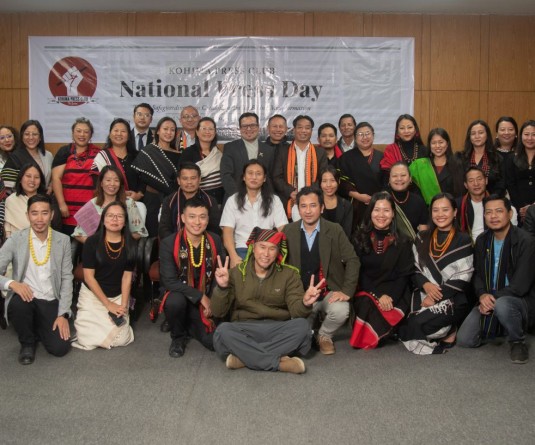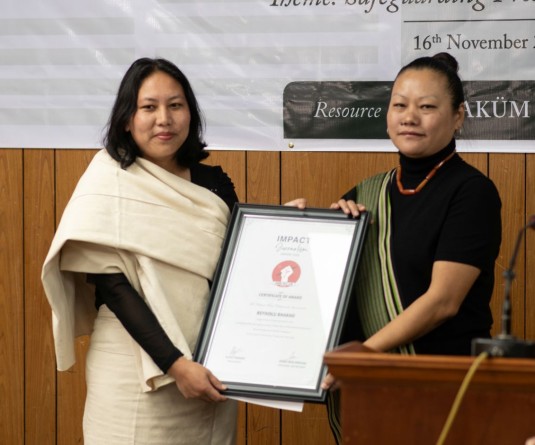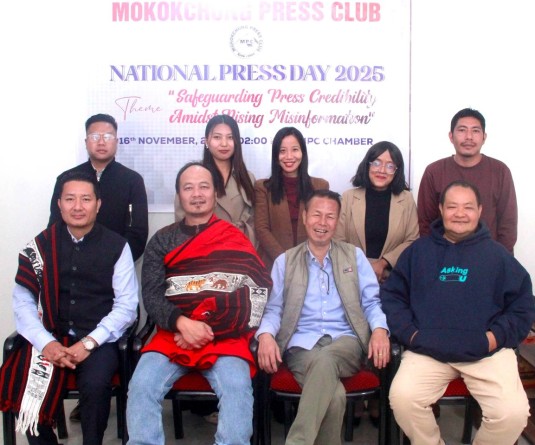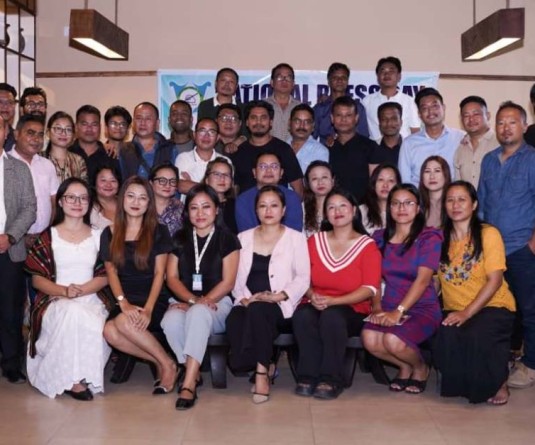
Morung Express News
Kohima | May 7
The Nagaland Government has been working to set up a Biosafety Level-3 lab in Naga Hospital Authority, Kohima and another Biosafety Level-2 lab in CIHSR, Dimapur.
As setting up of such labs require numerous safety and security protocols and detailed Standard operating Procedures (SoPs), it has become pertinent that there can be no compromise on the various protocols amidst the race to set up these labs.
“A BSL-3 laboratory is an enclosed laboratory containment commonly used for work with microbes and viruses, which can be easily transmitted by aerosols, such as the current pandemic disease” explained a health expert from the state.
The expert informed that establishment of a Biosafety Level 3 laboratory requires high-level quality of work, materials, construction and diligent following of protocols.
“Systemic scientific process of workflow is required from the start of construction to the functioning of a BSL-3 laboratory. If the requirements are not met, it could lead to a potential hazard. However, if done properly, it would also be the safest place in the midst of an outbreak” added the expert.
Speaking to The Morung Express, Dr. Samiran Panda, Director & Scientist-G, ICMR National AIDS Research Institute, (NARI) Pune, Maharastra informed that there are different classifications for BSL facility with certain specifications.
“Covid 19 can be dealt in a biosafety cabinet, which is classed A & 2, and it doesn’t require BSL-3 facility. BSL-2 is good enough” said Dr. Panda.
No compromise on safety
and security protocols
On the apprehensions if it is advisable to set up a lab at NHAK, Dr. Panda who has been to Kohima on several occasions maintained that “it’s not about physical location or the infrastructure.”
However, he asserted that the quality of the construction and its materials should not be compromised at all, and it is essential to strictly adhere to quality, safety and security protocols.
For BSL-3 labs, the Indian Journal of Medical Research (IJMR) states that one of the important prerequisite is specifying the need of engineering controls. Laboratory protocols should be developed to identify the areas where biosafety can be breached or compromised using existing SOPs.
Finding and hiring the right construction agency for the facility is key to success of the project.
Dr. Panda said, it is advisable to hire an expert consultant agency because a BSL-3 facility would require maintenance of adequate temperature, moisture, electricity, water and biosafety etc.
He advised the Nagaland Government to enter into a “contractual agreement of a memorandum of understanding (MoU)” clearly stating maintenance of quality standard with the agency.
The IJMR also states that the quality of construction must be supervised by a competent agency or group of engineers. Further, Annual Maintenance Contracts (AMC) of all important equipment should be done in advance to ensure continuity of routine maintenance, while MoU should be signed with the contractor and sub-contractors for providing support for at least five years.
Multi-specialty team
Since BSL-3 lab has many components, Dr. Panda advised that there should be a multi-specialty team including microbiologists, engineers, technicians, support staff and maintenance persons.
It has to be a dedicated team which is not changed frequently, said Dr. Panda.
A medical microbiologist should be the officer-in-charge for the overall functioning - operation and maintenance of the facility, he advised, adding that there has to somebody who is in-charge of the BSL-3 and if anything goes wrong he/she should be capable of quickly getting the appropriate technical person to get it fixed.
Dr. Panda advised the state government to identify a company for annual maintenance contract with their own engineers and support staff stationed in Nagaland.
He meanwhile stated that there has to be “political commitment and dedicated resources.”
“We cannot have a BSL facility for one year and close it down. It should be for a minimum period of 5-10 years,” he added. For this, Dr. Panda said, the government’s commitment to financial and resource support is essential.






